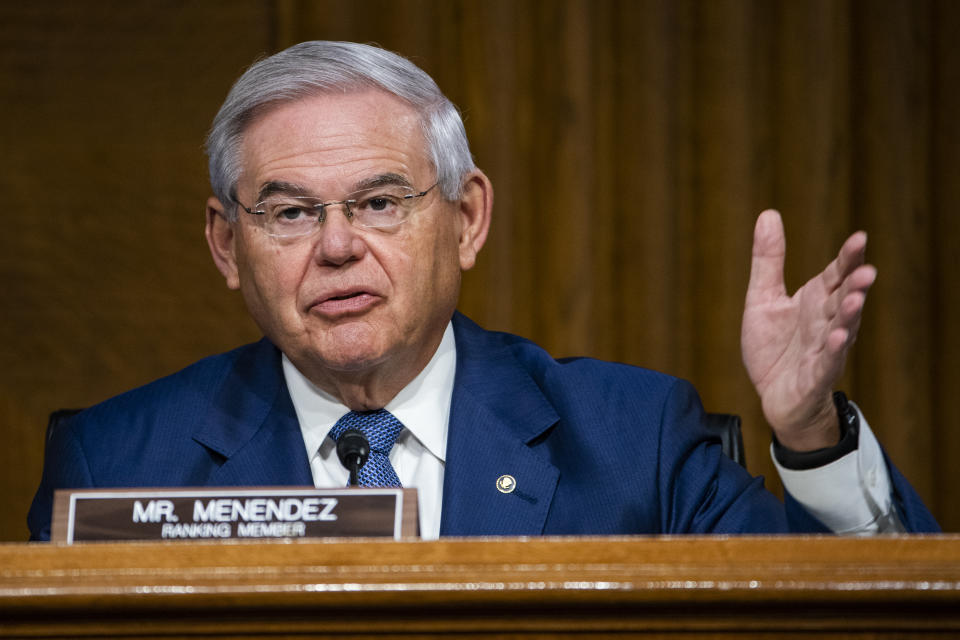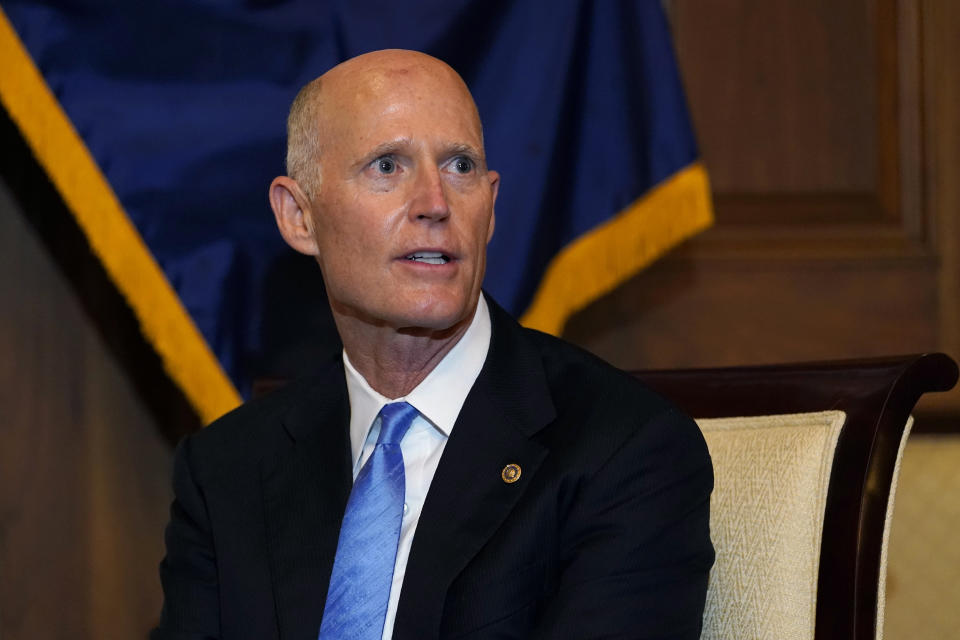Coronavirus stimulus: Breaking down the debate over state and local aid
It was the big question for months: Would Congress and the Trump administration strike a deal on another coronavirus relief package before the 2020 election?
Clearly, the answer was no.
Stimulus talks were on-again, off-again for the past several months — and House Speaker Nancy Pelosi (D., Calif.) and Treasury Secretary Steven Mnuchin negotiated for the past few weeks, in attempt to eke out a deal before Nov. 3. Ultimately, the two sides could not overcome their differences in time, and didn’t even come up with a proposal for the Republican Senate to consider (and most likely reject).
It remains to be seen if negotiations will be more successful after the election, though that largely depends on the election results.
One of the biggest stumbling blocks throughout the negotiations has been money to help state and local governments get through the pandemic.
‘We’re laying off essential employees...this is real.’
As Washington bickers over helping states and municipalities, local leaders say they are already feeling the pain. Joe Buscaino, president of the National League of Cities and a Los Angeles City Council member, told Yahoo Finance that without more aid, there will be “severe economic consequences.”
“We're laying off essential employees, canceling job-creating private-sector infrastructure projects, we also have seen a reduction in services that support the operation and growth of small businesses,” said Buscaino. “So this is real.”
If Congress doesn’t act, Buscaino said more public employees like teachers, first responders, health-care workers, sanitation workers and others could lose their jobs.
“It would be the height of irony that those who helped us get through the pandemic, and would help us again if a second wave materializes, are the ones who would be laid off on the unemployment line instead of on the front line, helping us defeat the virus,” said Sen. Bob Menendez (D., N.J.) in an interview with Yahoo Finance.

Menendez and other Democratic lawmakers have been pushing for more money to help state and local governments stay afloat.
Republicans and the president have largely fought against the additional funding — saying they see it as a political effort to save states and cities that budgeted badly.
“She [Pelosi] wants to bail out poorly run Democrat states. And that's a problem,” said President Trump last month.
‘This is not a red or blue state issue’
It’s not just blue states that are struggling. Amid record unemployment and decreased travel and tourism, many states saw their tax revenue plunge — all while the costs of fighting the virus added up.
The National League of Cities estimates cities will face a $360 billion revenue shortfall between 2020 and 2022. The bipartisan National Governors Association has asked Congress for $500 billion.
“Republicans have sought to divide the nation between red and blue states,” said Menendez. “This is not a red or blue state issue. This is a red, white, and blue issue.”
Pelosi originally asked for $1 trillion for state and local aid, but eventually came down to $436 billion. The White House reportedly countered with $300 billion. In an Oct. 29 letter to Mnuchin, Pelosi said state and local aid remained unresolved.
“The American people are suffering, and they want us to come to an agreement to save lives, livelihoods and the life of our American Democracy as soon as possible,” said Pelosi in the letter.
Even if Pelosi and Mnuchin were to come to a deal, it would be a tough sell for Republicans in the Senate.
“Florida, you know, our citizens pay the federal tax. When did we become responsible for the budgets of other states?,” said Sen. Rick Scott (R., Fla.) in an interview with Yahoo Finance.
Some Republicans would rather give states and municipalities more flexibility in how they spend CARES Act money, instead of allocating more. Scott argues states could also take on loans.

“The federal government already has $27 trillion worth of debt. We're not living within our means. We've got to live within our means. Our state and local governments have to live within their means. At the same time, I am all in on helping state and local for issues relating providing relief for coronavirus,” Scott said.
‘We actually see ourselves as the middle ground.’
Earlier this year, Menendez introduced a plan with Sen. Bill Cassidy (R., La.) that would give $500 billion to state and local governments, divided up based on revenue losses, infection rates and population size.
“We actually see ourselves as the middle ground,” said Menendez.
The money could not go toward pensions, one of Republicans’ main problems with additional state and local aid. Still, Scott argues it wouldn’t work.
“Money is fungible,” said Scott. “There's no way you can stop them from using the money to pay for things that they shouldn't.”
With no sign of progress in Washington, cities and states have no clear answers — and are urging Congress to break through the gridlock.
“We just can't let partisan politics get in the way of supporting our nation's residents, families and workers,” said Buscaino.
Jessica Smith is a reporter for Yahoo Finance based in Washington, D.C. Follow her on Twitter at @JessicaASmith8.
Read more:
2020 election: 'Red waves and blue walls may be a thing of the past,' says Michigan Congressman
Coronavirus Stimulus: Senator pushes for new tax credits to boost travel, hospitality industry
Trump's stance on coronavirus stimulus shifts 'on an hourly basis,' Sen. Chris Murphy says
House report: Treasury Dept. encouraged banks to prioritize existing clients for PPP loans
Coronavirus stimulus: Democratic congresswoman says Mnuchin's $1.8T offer would bring relief


